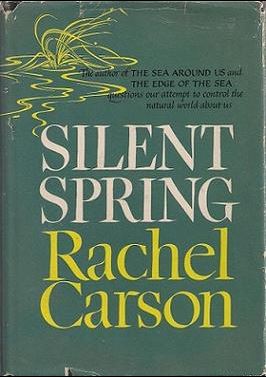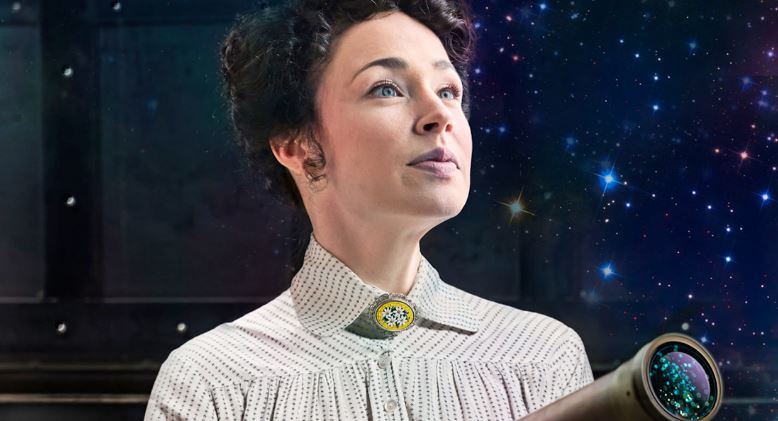
If you ask anyone from China whether she knows Rachel Carson, the chance for YES is slim. But if you ask her whether she knows the pesticide DDT, expect the positive answer. I hadn’t known about Rachel Carson until I moved to Pittsburgh eleven years ago. I was accepted by Rachel’s alma mater, Chatham University, to study literary writing. Since then, my knowledge about Rachel and her seminal work, Silent Spring, among others, has been enhanced greatly.
Rachel Carson is frequently mentioned in my graduate study about writing and global sustainability. Her unequivocal caveat about excessive use of pesticides like DDT that were poisoning food chains from insects upwards feels like today. But what really happens today is that we have another alarming scientific finding—the excessive emission of greenhouse gases from human activities.
The concurrent coronavirus outbreak in China tells us how problems elsewhere can impact us. We are living in a commercially globalized planet. When China suspended all production activities the past few weeks to contain the spread of coronavirus among people, our supply chains of goods and services around the globe were disrupted in a ripple effect. The future analysis of Wall Street is gloomy about the coronavirus concerns, thus stocks slid for four consecutive days as of Feb 25.
The concurrent global warming has prompted abnormal climate patterns and deterioration in the ecosystems. Natural disasters have become more unpredictable and volatile, causing higher risks to living habitats, transportation and the flow of consumption goods. No one wants to see their housing insurance cost rising or learn our food prices are going up because swarms of millions of locusts have ravaged crops in East Africa.
This spring of 2020 is not silent, far from it. In America, I hear this phrase a lot—The sky’s the limit. If that’s the case, how can we limit our dreams? How can we restrain our potential to explore the impossible?
American astronomer Henrietta Leavitt sparkled the brightest in Lauren Gunderson’s play, Silent Sky. I had great pleasure in learning about this piece of American history through theater art. If you like the book and movie Hidden Figures, you’d find resonances from Silent Sky. A decade before American women gained the right to vote, Henrietta Leavitt and her fellow women “computers” had transformed the science of astronomy. In the Harvard Observatory, Leavitt found 2,400 new variable stars and made important discoveries about their fluctuating brightness, enabling her male colleagues to map the Milky Way and beyond.
From Rachel Carson to Henrietta Leavitt, from Silent Spring to Silent Sky, women, or I should say, women in America, are characterized as a gender of silence. Bear with my deductive reasoning. As I mentioned in my book, Golden Orchid, Chinese people like quoting Chairman Mao Zedong’s famous dictum “Women hold up half the sky.” If that’s the case, isn’t half of the sky in America silent, metaphorically?
Not quite. In fact, I see American women in general are adding volume to the public discourse. The US-originated, global #MeToo Movement speaks for itself. In both America and China, the number of women graduates from universities is slightly outnumbering men. Universally speaking, we give credit to women for their role in our first language since birth, thus we call it the Mother Language. Thanks to language, we’re able to speak out our minds in exchange for ideas and materials to meet our needs.
Being an American woman, I find my biggest liberation is to voice my opinion publicly. In East Asia, I see a trend for educated women, urbanites especially, to speak up. A good sign. But do not misinterpret that if a Chinese or Korean or Japanese woman—it seems I’m often mistaken for either nationalities—does not open her mouth, she is submissive and introverted. Asian women are well-regarded as good housewives and mothers because they are adaptable and resilient. They respect harmony and self-sacrifice.
Pressuring and even torturing relatives and family members are a common tactic for Chinese authorities to silent dissent. While Chinese young women are gradually voicing their opinions subtly without doing harm to their loved ones, a frightening phenomenon is more pronounced than ever among rural Chinese women. According to the World Health Organization, suicide in China accounts for about a quarter of all suicides worldwide. In contrast to the West, more Chinese women than men are killing themselves.
I know that self-destruction is a heavy subject, just as heavy as talking about mass suicide in the animal kingdom, or, as a matter of fact, about mass suicide of hopeless Chinese farmers who attempted to drink DDT outside a government building. Depression is a silent killer. Threats to survival can lead to suicide. Environmental changes increase the risks of suicidal behaviors. Scientists have warned that thousands more people may die by their own hand as Earth’s climate warms.
Environmental changes may trigger change of emotions. If you stand next to a blast furnace in an insulated uniform for long hours, you probably will become more hot-tempered, too. If you live in a run-down house that gives you daily worry about the roof falling and the basement flooding, there is a high chance that you see everything in your life as gray or even dark.
In the ancient days, people learned about the advent of earthquakes or a rainfall by observing the abnormal behavior of animals. Today, a rise in mass mortality events among species has sounded a similar alarm. When supply chains are broken, our flow of consumption goods stops. When food chains are disrupted, our survival as an entire humanity will face unprecedented challenges.
More than half a century ago, Rachel Carson called for science to work with nature. I’m not a scientist but I’m a science believer. And as an American and a global citizen, I’ve witnessed enough unprecedented misconducts and misbehavior of our politicians and policymakers in the past four years. The year of 2020 cannot be silent. Don’t let silence kill our hope and the future of our next generation to reach their boundless sky.

